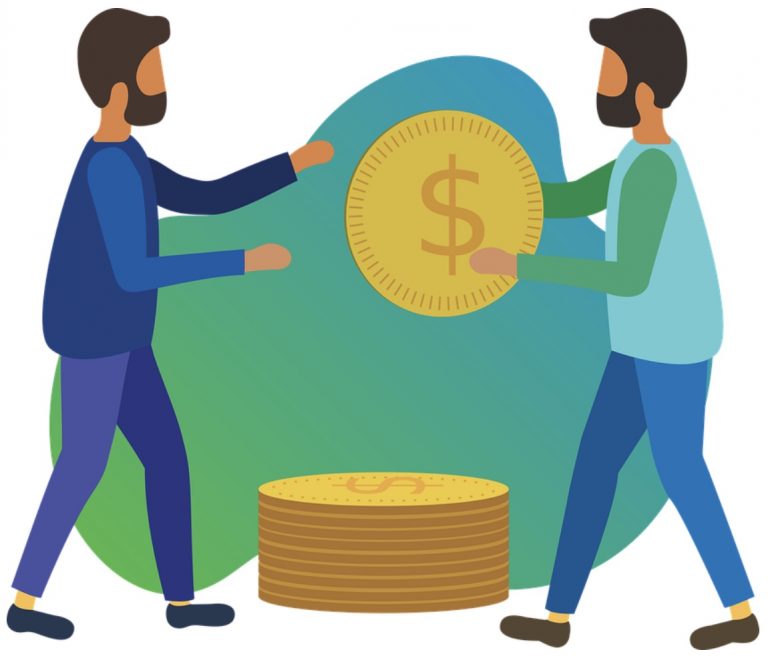Many people are keen to get their hands on credit to help pay for an expensive item up front, or just to bridge the gap until payday. It seems that in South Africa, a disproportionately high percentage of locals turn to the resident mashonisa (more commonly known as ‘loan sharks’ in the rest of the world) in order to do this, and the use of this kind of provider has only increased since the Covid pandemic. Loan sharks are widely available throughout South Africa.
A recent ‘informal lending report’ commissioned by the regulated South African loan provider Wonga has revealed the extent that informal lenders in South Africa have dominated the market. Formal ‘regulated’ lenders in many cases are not as accessible to working-class people as they would like, meaning that to some, using a loan shark is their only option for credit. If they need some cash fast, it has become the place of the mashonisa to come to the ‘rescue.’
Some people may wonder why mashonisas are used when their reputation suggests they have been known to have intimidating behaviours – however, to many locals, loan sharks are not like this. Many people believe that they serve an important community role; they are accessible, friendly and convenient. If you can pay them back on time, then this may well be the case. Loan sharks are used by some because the interest does not change over time or through the length of the loan, unlike formal lenders. This means the borrower knows exactly how much they have to repay and when, making it easy to understand. They can just walk up to their local mashonisa and get the cash they need right there and then – unlike with formal providers where there is a long application process, credit check and wait for the money.
But it’s a real risk, isn’t it?
These loan sharks are not regulated for a reason – they do not have to be registered with the National Credit Regulator. While this affords them flexibility in who they lend to (such as those with bad credit) this also means that there are few protections in place for the customer.
Estimates suggest there could be 40,000 mashonisas operating in South Africa, and they can be anyone. Your local newsagent may also serve as one. Your taxi driver might be one. Anyone who has money to spare and loan out, could pose as one. They can then offer this money to anyone who needs a boost. This is on the understanding that it is a short term loan which must be paid back within a few weeks. According to Venture SA, they are usually for amounts that range between R50 and R5 000 and are to cover bills and food. This informal kind of loan might seem convenient, but without regulation, the borrower is not covered legally if they cannot repay the loan.
The interest rates can also be high and unobtainable, in some cases this could be 50% of the loan amount which can be ridiculously high.They have also been known to take personal items to act as collateral for the loan, so if you cannot pay it back, then that item is kept.
Many experts believe that the rising cases of mashonisas and unregulated credit providers means that debt and financial problems have increased across South Africa. Desperate consumers who are in real need of money have turned to these providers to access quick credit to help them in the short term, but in the long term, they have found their finances to be in an even worse state. They need to borrow extra money in order to cover previous debt, which they then can’t pay off, so they need to get out another loan, and so on. It is a worrying and desperate time for many which could see them get into a lot of trouble.
So, what can be done?
It is still the advice of any professional who knows about this industry to only choose regulated providers when applying for a short term loan. Go to the National Credit Regulator website and you can search for any company on their index to ensure they are regulated. If they are, this means they are legally bound to adhere to certain conditions which have been designed to help protect borrowers. This includes things like ‘eligibility checks’ to check that the person applying for the credit can actually afford to repay it. Checking over a person’s credit file is a good indicator as to how they manage their money.
Mashonisas don’t do this – and so have no way of telling whether the loan is going to cause the borrower more harm than good. The person borrowing the money has no legal protection, and although it appears that many locals rate their community mashonisas highly, those loan sharks have gone into this business for one thing – to make money. And therein lies the problem.
Still, with reportedly 80% of South Africans appearing to use their mashonisas it is clear that they will be around for some time. It is hoped that in time, mashonisas will be able to remain within the communities, but as a regulated member of the Credit Act.
